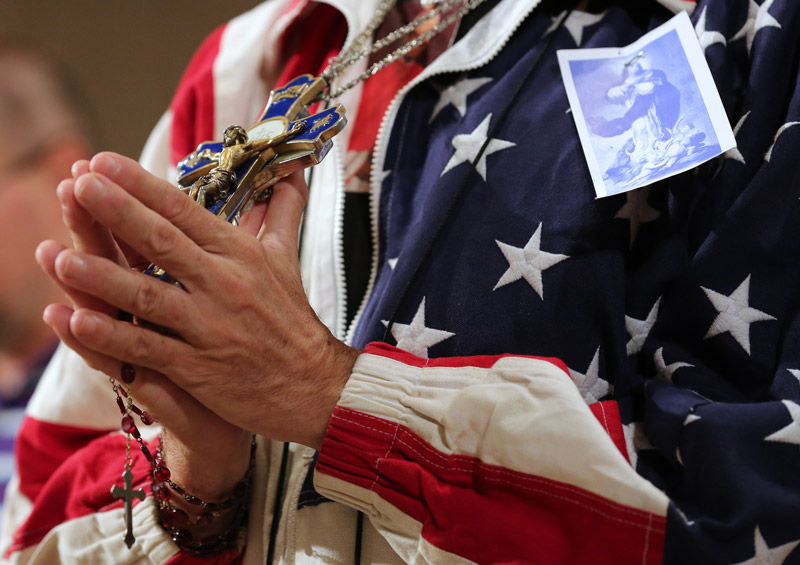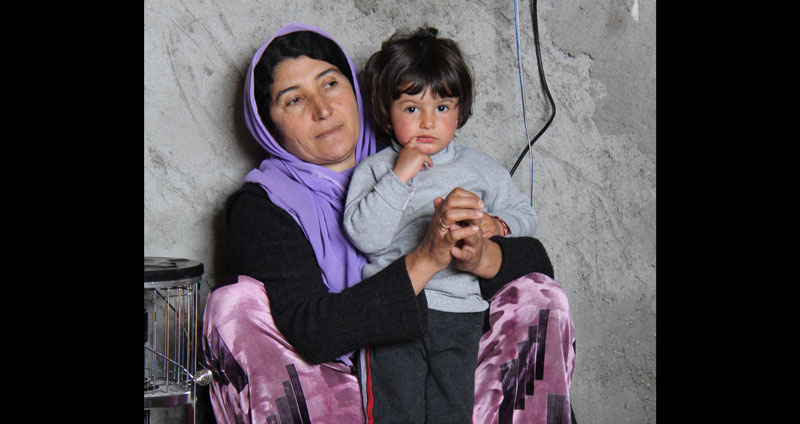WASHINGTON—Since 1976, the U.S. Conference of Catholic Bishops’ have issued a quadrennial statement to guide Catholics “in the exercise of their rights and duties as participants in our democracy.”
“Forming Consciences for Faithful Citizenship,” the latest revision of the current document, was done in 2015, and it was issued ahead of the 2016 presidential elections.
The issues, though, don’t go away just because presidential candidates are not on the ballot. In fact, this year’s midterm elections on Nov. 6 promise to deliver turnout numbers rivaling midterm voter interest in at least a generation.
“Faithful Citizenship” is meant to provide a moral framework voters can use to analyze the issues. It contains footnotes and multiple references to Church teaching, papal encyclicals and previous statements by the U.S. bishops.
Here is an issue-by-issue look of select passages in the USCCB document.
Abortion: “the deliberate killing of a human being before birth, is never morally acceptable and must always be opposed. Cloning and destruction of human embryos for research or even for potential cures are always wrong.”
Assisted suicide: “The purposeful taking of human life by assisted suicide and euthanasia is not an act of mercy, but an unjustifiable assault on human life. … Our (bishops’) conference supports laws and policies to protect human life to the maximum degree possible, including constitutional protection for the unborn and legislative efforts to end abortion, assisted suicide and euthanasia.”
Capital punishment: “Our nation’s continued reliance on the death penalty cannot be justified. Because we have other ways to protect society that are more respectful of human life, the USCCB supports efforts to end the use of the death penalty and in the meantime to restrain its use through broader use of DNA evidence, access to effective counsel, and efforts to address unfairness and injustice related to application of the death penalty.”
Conduct during war: “Genocide, torture, and the direct and intentional targeting of noncombatants in war or terrorist attacks are always wrong.”
Economy: “Social and economic policies should foster the creation of jobs for all who can work with decent working conditions and just wages. Barriers to equal pay and employment for women and those facing unjust discrimination must be overcome.”
Environment: “Effective initiatives are required for energy conservation and the development of alternate, renewable, and clean-energy resources. Our Conference offers a distinctive call to seriously address global climate change, focusing on the virtue of prudence, pursuit of the common good, and the impact on the poor, particularly on vulnerable workers and the poorest nations.”
Health care: “Affordable and accessible health care is an essential safeguard of human life and a fundamental human right. … Health care coverage remains an urgent national priority.”
Immigration: “Comprehensive reform is urgently necessary to fix a broken immigration system and should include a broad and fair legalization program with a path to citizenship; a work program with worker protections and just wages; family reunification policies; access to legal protections, which include due process procedures; refuge for those fleeing persecution and violence; and policies to address the root causes of migration.”
Labor: “Catholic social teaching supports the right of workers to choose whether to organize, join a union, and bargain collectively, and to exercise these rights without reprisal.”
Marriage: “Marriage must be defined, recognized, and protected as a lifelong exclusive commitment between a man and a woman, and as the source of the next generation and the protective haven for children.”
Media: “Regulation should limit concentration of media control, resist management that is primarily focused on profit, and encourage a variety of program sources, including religious programming.”
Refugees: “We support policies and actions that protect refugees of war and violence, at home and abroad, and all people suffering religious persecution throughout the world, many of whom are our fellow Christians.”
Religious freedom: “US policy should promote religious liberty vigorously, both at home and abroad: our first and most cherished freedom is rooted in the very dignity of the human person, a fundamental human right that knows no geographical boundaries.”
By Mark Pattison



